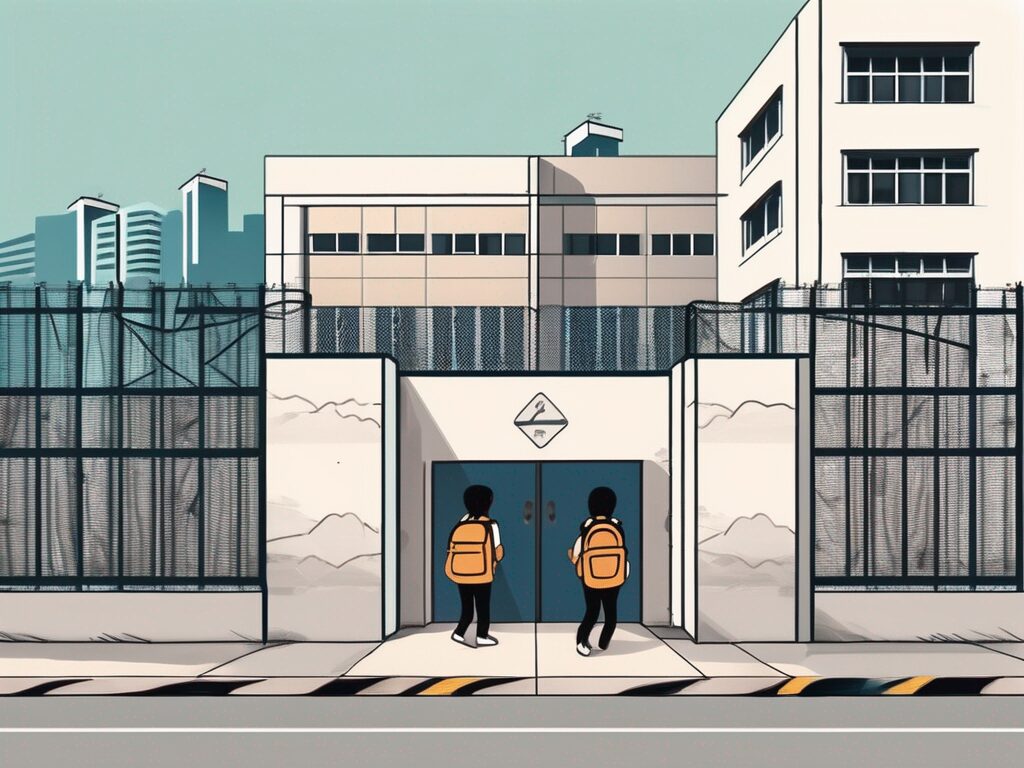The landscape of education in Hong Kong is as diverse as its population. With a significant number of migrant families calling the city home, the need for inclusive and accessible education is more pressing than ever. However, migrant children face a myriad of challenges in accessing quality education. This blog post will delve into four major challenges that these children encounter.
1. Language Barrier
The first and perhaps the most significant challenge is the language barrier. Hong Kong’s education system primarily uses Cantonese and English as mediums of instruction. For migrant children, who often speak different native languages, this poses a significant hurdle.
Imagine being dropped into a classroom where everyone is speaking a language you barely understand. It’s like being in a foreign film without subtitles. This is the reality for many migrant children in Hong Kong schools. They struggle to keep up with their peers, not because they lack intelligence or motivation, but simply because they don’t understand the language.
Language Support Programmes
Some schools offer language support programmes to help migrant children overcome this barrier. However, these programmes are often insufficient. They may only be offered a few hours a week, which is hardly enough for a child to gain fluency in a new language.
Moreover, these programmes often focus on Cantonese, even though English is also a medium of instruction in many Hong Kong schools. This leaves migrant children struggling in subjects taught in English.
2. Cultural Differences
The second challenge is cultural differences. Migrant children come from diverse backgrounds, each with its own set of values, traditions, and ways of life. These differences can make it difficult for them to fit in at school.
Imagine being the only one in your class who celebrates different holidays, eats different food, or wears different clothes. It’s like being a square peg in a round hole. This is another reality for many migrant children in Hong Kong schools. They often feel isolated and misunderstood, which can affect their academic performance and mental health.
Cultural Sensitivity Training
Some schools offer cultural sensitivity training to help students and teachers understand and respect different cultures. However, these trainings are often superficial and do not address the deeper issues of cultural misunderstanding and discrimination.
Moreover, these trainings often focus on the cultures of the majority, leaving out the cultures of minority groups. This further marginalises migrant children and makes them feel excluded.
3. Financial Constraints
The third challenge is financial constraints. Many migrant families in Hong Kong are low-income, making it difficult for them to afford the costs associated with education.
Imagine having to choose between buying school supplies and putting food on the table. It’s like being stuck between a rock and a hard place. This is yet another reality for many migrant families in Hong Kong. They often have to make sacrifices that affect their children’s education.
Financial Aid Programmes
Some schools offer financial aid programmes to help low-income families. However, these programmes often have strict eligibility criteria, which many migrant families do not meet. This leaves them struggling to afford the costs of education.
Moreover, these programmes often cover only the basic costs of education, leaving out the additional costs of extracurricular activities, school trips, and other enrichment opportunities. This further disadvantages migrant children and limits their educational experiences.
4. Lack of Support Systems
The fourth and final challenge is the lack of support systems. Migrant families often lack the social and institutional support needed to navigate the education system.
Imagine trying to find your way in a maze without a map. It’s like being lost in a labyrinth. This is the final reality for many migrant families in Hong Kong. They often feel overwhelmed and helpless, which can affect their children’s education.
Support Services
Some schools offer support services to help migrant families. However, these services often lack the resources and expertise to address the unique needs of migrant families. This leaves them struggling to navigate the education system.
Moreover, these services often focus on the needs of the majority, leaving out the needs of migrant families. This further marginalises them and makes them feel unsupported.
In conclusion, migrant children in Hong Kong face numerous challenges in accessing education. These challenges are complex and multifaceted, requiring comprehensive and inclusive solutions. It is our collective responsibility to ensure that all children, regardless of their background, have equal access to quality education.
Empower Your Teaching Career and Support Migrant Education
As we strive to overcome the hurdles migrant children face in education, it’s crucial for teachers to be equipped with the right qualifications and support. IPGCE offers an International Postgraduate Certificate in Education that not only enhances your credentials but also propels your career forward, increases your salary potential, and connects you to a global network of educators. With our flexible online study options, you can balance professional development with your current commitments. If you’re ready to make a significant impact in the lives of migrant children and advance your teaching career, Join the UK’s #1 Teacher Training Course today.

